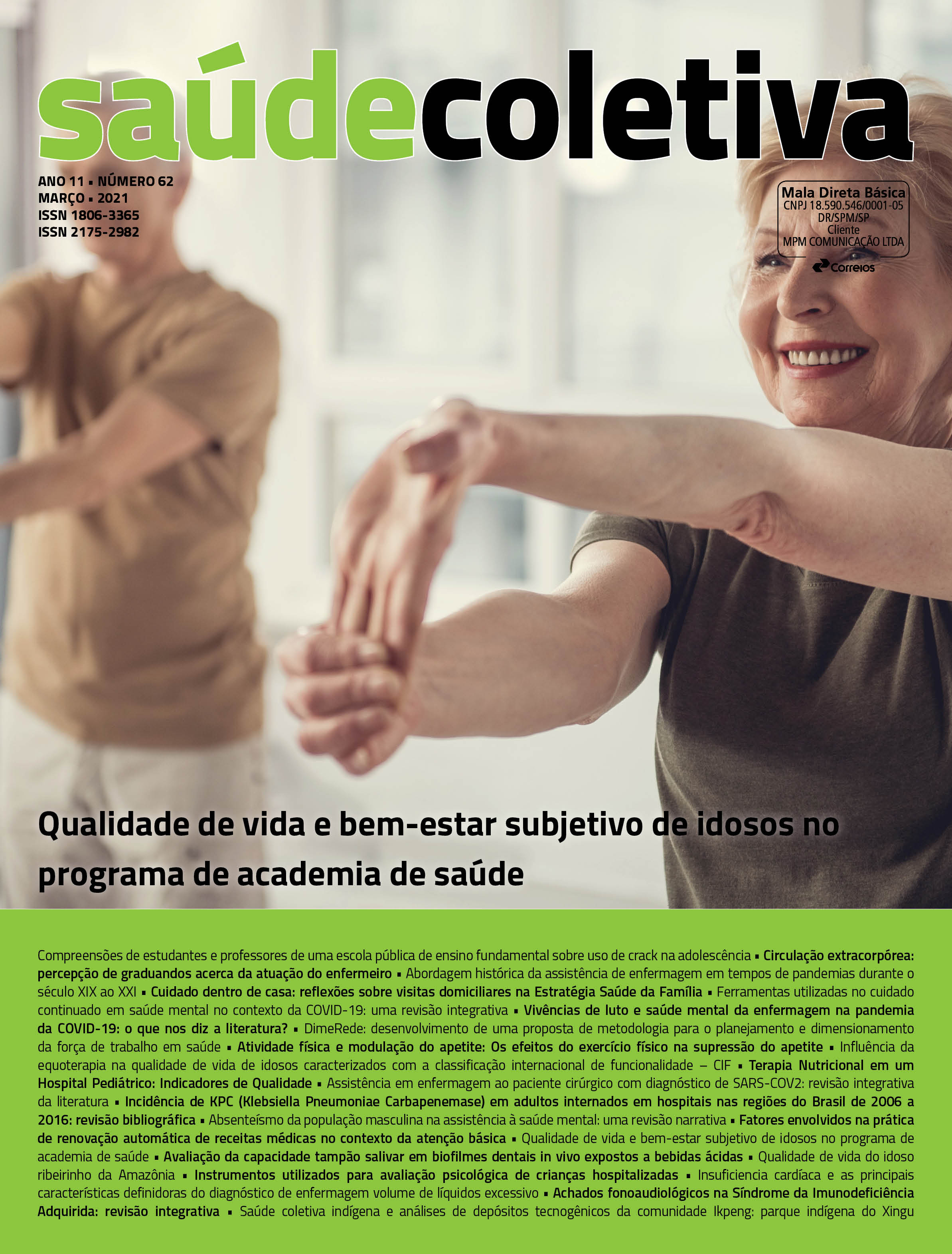Influence of therapeutic horseback riding in life quality of elderlies classified by the international classification of functioning, disability, and health – ICF
DOI:
https://doi.org/10.36489/saudecoletiva.2021v11i62p5128-5143Keywords:
International Classification of Functionality, Assisted Riding Therapy, Quality of life, ElderlyAbstract
Objective: The objective of this study was to classify active elderlies"™ health and life quality through the Core set of the International Classification of functioning, disability and health (ICF) and the 36-Item Short Form Health Survey (SF-36), in therapeutic horseback riding. Methods: An observational, analytical, transversal study was carried out with ten elderlies of 60 to 80 years old. All individuals performed 16 therapeutic horseback riding session of 30 minutes each. ICF, SF-36 and the Mini-mental State Examination (MMSE) were utilized to evaluate the elderlies. Data were analyzed by descriptive statistical analysis and paired Student"™s t-test. Results: MMSE pre-intervention demonstrated no cognitive decline. In ICF, domains I, II and II were predominantly coded with qualifiers 0 and 2, and domain IV with qualifiers 3 and 4. Conclusion: Therapeutic horseback riding for elderlies is an effective therapeutic alternative for the maintenance and improvement of life quality.







